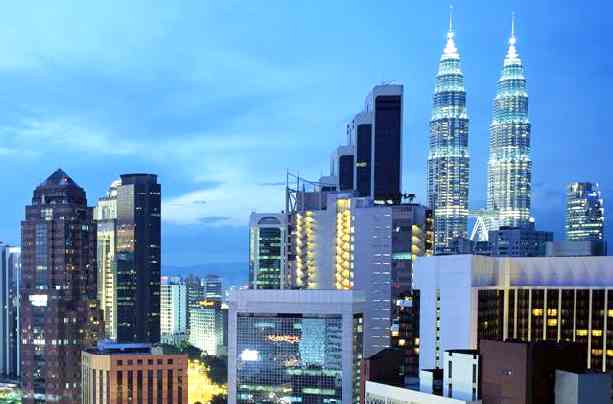
My recent trip to Malaysia gave me a whole new outlook on what a Muslim country is and what it can be. From the moment I stepped into Malaysia I was blown away by how developed it was, from the beautiful airport, to the clean streets and sky scrapers in Kuala Lumpur (KL). Following in the footsteps of Dubai, KL has its fair share of opulent Malls, mostly with designer brands which the browsing locals pass by but never enter, instead opting for the manic food falls and restaurants.
KL is a rich and diverse mixture of native Muslim Malay, Chinese, Sri Lankan and Indian, and many tourists and businessmen moving around in the sticky tropical heat. Women are very much part of the Malay public, from shopping mothers, groups of girls wandering around in the hijab’s and skinny jeans youth ‘uniform’ to female stall vendors. What’s most striking about Malaysia is the warm but quiet character of the people. Not only are they happy to help a confused tourist or patiently stop their cars for a pedestrian to cross the road but also in the service industry its clear their not only hard working but very happy to help.
The Malaysian government have also been careful to maintain some of KL’s natural character through the rain forest reserves in and around KL. Also dotted around are mini rain forest gardens sprouting between buildings like weeds in the UK and towering tropical trees lining the streets. Other areas of KL like China town, Little India and Chow Kit show the more normal side to everyday life, showing how the poorer members of KL live, in fairly run down but alive with buzzing shops and markets with of course very clean streets.
One thing I must admit was my surprise at the level of development in KL. Having many natural reserves of Tin, Oil, gas, Rubber and Palm Oil to name a few, the government has used these to good effect in KL creating shopping districts, tower blocks for businesses and banks. One of the many things I learnt from the Taxi drivers was how the Malaysian government actively encourages foreign companies’ to do business in KL, resulting in the high level of Chinese in KL. In addition to this form of revenue tourism is another, where unfortunately pubs and clubs blearing out music to the early hours is a fixture in KL for tourists to enjoy.
It is clear that the government wants not to be left behind in the race for progression. Encouraging Muslim Malay youth into higher education and creating multiple avenues for wealth show a need to improve their economic status but this has also lead them into the recent economic crisis and the previous crash involving the Tiger economies in the 1990’s. The recent crisis has devastated many Malay lives causing companies to cut jobs, putting many homes in jeopardy. One Taxi driver explained how his office job was cut and how he now has to drive taxi’s for 15- 20 hours a day, 7 days a week to make ends meet.
The push for westernisation has also reduced Islamic atmosphere, and allowed unislamic values to take root in society. Locals also related how the Muslim youth are experiencing the same identity problems that British youth face. Covering , obedience to parents and pregnancies out of wed lock are increasing problems, where carefree lifestyle of the Chinese and Hindu population is looking increasingly attractive.
My trip showed me what a country can be with a little vision and appropriate use of resources, where that be natural, financial or a population eager to progress. This gave me hope for the rest of the Muslim world and also exposed how badly our leaders do their jobs, stealing or squandering our wealth with no measure of care for the lives of ordinary people.
But my visit also highlighted a worrying trend of concentrating solely on imitating an economic model of the surrounding countries without thinking about what view point or way of life to base it on. I foresee more economic crises in the future due to imitating the West – Indonesia is still recovering from the Asian financial crisis in 1997! The increasing social problems in Malaysia have also been due to integration of kufr values into an Islamic identity.
The biggest shame is that that Malaysia has much to offer the world and actually contradicts the Western narrative that Islam hinders progress and development. Malaysia continues to remain insular and has no plans to export Islam and its manner of development to the world. It was Islamic expansion that brought Muslim traders from Hind (India) to the Malay peninsular, which led to Sultan Muzaffar Shah I of Kedah, the become Muslim and turn the peninsula into a trade hub. Imitating the only create social problems like the West. Also economic development is not exclusive to capitalism. Islam is not only capable of producing financial progress, but does so without sacrificing the social system. I hope the Malay learn from the mistakes of the west and look at their history to reassess their future.
